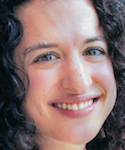Gulf Coast Consortia announces Dunn Foundation seed grants to study hearts, aging, aggression and signaling pathways
Four teams of scientists at Rice University and other Gulf Coast Consortia (GCC) institutions have earned research seed grants from the John S. Dunn Collaborative Research Awards.
Winning projects include research on heart valves, aggression, signaling pathways and gut bacteria modifications to increase human lifespan. The program also will fund a spring 2016 symposium on membrane biophysics.
The 10-year program began in 2008 to support new collaborations between researchers at Rice’s BioScience Research Collaborative (BRC) and their partners at other institutional members of the GCC. The program is funded by the John S. Dunn Foundation and administered by the GCC.
Research seed grants are awarded annually and are worth up to $100,000 each. The workshop award is $8,000. The awards support projects that foster interdisciplinary and multi-institutional research at the BRC.
Miniature mechanisms will help test heart valves
Bioengineer Jane Grande-Allen of Rice and cardiovascular geneticist Dianna Milewicz of the University of Texas Health Science Center at Houston (UTHealth) will develop a miniature mechanical tester and a custom organ culture bioreactor to study the heart valves of rodents as a way to learn about factors that cause heart disease.
The aim is to better understand the onset, progression and treatment of heart valve disease. The study of live tissue will help the researchers learn how abnormal mechanical stimulation, like hypertension, drives the remodeling and pathology of heart valves. The work will include assessment of mouse models genetically predisposed to have defects in either the mitral or aortic valves.
Grande-Allen is a professor of engineering at Rice. Milewicz is the President George Bush Chair in Cardiovascular Medicine and the Medical Genetics Division director, professor and vice chair of internal medicine at UTHealth.
Fruit fly genomes hold clues to human aggression
Rice bioscientist Julia Saltz and Baylor College of Medicine geneticist Herman Dierick will use genome editing to reveal how molecular, neural and social factors orchestrate variations in the aggressive behavior of fruit flies. Because the flies’ genomes are established models for studying genetics across species, the researchers will apply their results to current understanding of human aggression.
The researchers will use novel technology to remove a specific serotonin receptor from the genotypes of flies to see how such a manipulation will affect their aggressive behavior, their ability to change behavior in response to social interactions and their response to serotonin-enhancing drugs. This will show whether genes influence the outcome of drug treatments for aggression.
Saltz is an assistant professor of ecology and evolutionary biology at Rice. Dierick is an assistant professor of molecular and human genetics at Baylor.
Adjusting gut bacteria to increase lifespan
Rice bioengineer Jeffrey Tabor and Baylor College of Medicine geneticist Meng Wang are studying how a molecule produced by a common gut bacterium may slow age-related health decline and increase lifespan.
Because mammals have very long lifespans, researchers commonly study the biology of aging in the roundworm C. elegans, which lives only 3 weeks. Wang recently discovered a molecule produced by a human gut bacterium increases C. elegans’ lifespan by 25 percent. However, whether the effect holds in mammals and whether the molecule can act as a nutritional supplement or must be produced by a bacterium inside the gut remains unknown.
Tabor is an expert in bacterial engineering. Under Dunn funding, Tabor and Wang will engineer the bacterium to produce much higher levels of the compound so that it can be tested in mice, and use green light to induce bacteria to secrete the molecule only in the gut to determine if the effect is nutritional or gut-mediated.
Tabor is an assistant professor of bioengineering at Rice. Wang is an assistant professor in the Department of Molecular and Human Genetics at Baylor’s Huffington Center on Aging.
Signaling pathways and cell differentiation
Rice bioscientist Aryeh Warmflash and Baylor biophysicist Ido Golding hope to learn more about the functions of protein-signaling pathways that control how embryonic cells differentiate as they develop. The cells, which contain identical DNA, eventually become all the different organs in the body.
Because it’s so difficult to observe and manipulate these pathways in vivo, Warmflash has developed a cell culture system in which human embryonic stem cells self-organize into patterns reminiscent of those in the mammalian embryo. Golding, an expert in single-molecule and single-cell measurements of transcription, and his laboratory will adapt their new tools to study signaling molecules in the micropatterned cell cultures. The results will explain how molecular-level events shape the patterning of an entire tissue or organism.
Warmflash is an assistant professor of biosciences at Rice. Golding is an associate professor of biochemistry and molecular biology at Baylor.
Membrane biophysics symposium
The Dunn Foundation will also support a research symposium on membrane biophysics to be held at the BioScience Research Collaborative in spring 2016. The focus will be the thin membrane that encapsulates all cells and contains a complex set of biochemicals that are essential for cell regulation, integrity and function.
The hosts will be James McNew, an associate professor of biosciences at Rice; Theodore Wensel, a professor and chair of the Verna and Marrs McLean Department of Biochemistry and Molecular Biology at Baylor; and Michael Zhu, a professor of integrative biology and pharmacology at UTHealth.
The Dunn Foundation is a longtime supporter of collaborative research through the GCC, which builds interdisciplinary research teams and training programs in the biomedical sciences that involve the computational, chemical, mathematical and physical sciences. GCC member institutions include Baylor College of Medicine, Rice University, the University of Houston, the University of Texas Health Science Center at Houston, the University of Texas Medical Branch at Galveston, the Institute of Biosciences and Technology of the Texas A&M Health Science Center and the University of Texas MD Anderson Cancer Center.










Leave a Reply